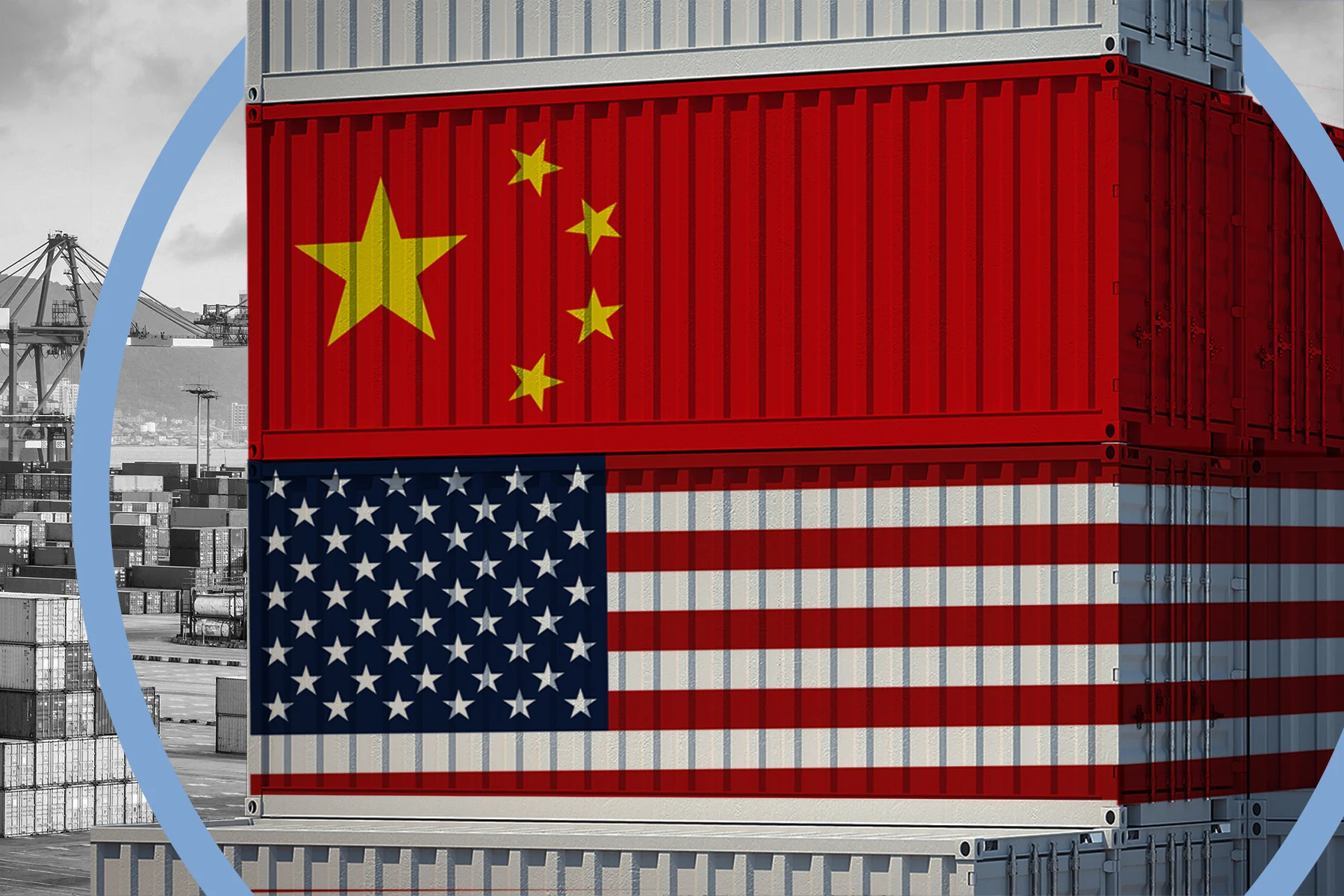When America levied sweeping tariffs on Chinese imports in 2018, many US firms scrambled to find alternative suppliers or pay the higher tax on goods from sources they’d spent years—sometimes even decades—developing.
Yet new research shows that business boomed for companies that supply the US government. Imports from China by these government-linked firms rose by roughly 33 percent for the average firm in the years that followed the new tariffs, says Lauren Cohen, the L.E. Simmons Professor of Business Administration at Harvard Business School.
The most surprising thing for us is ... they significantly increased their imports from China.
“The most surprising thing for us, by far, is not only did these firms not have as big of a drop as other firms, they significantly increased their imports from China,” Cohen says.
What gave these government suppliers an edge? They employed former government workers who could navigate complex federal procurement systems—and had relationships with people who run them. The strategy helped the companies secure more than twice as many tariff exemptions as competitors without government connections, helping exempted companies boost profits and sales, explains Cohen and colleagues in their working paper “The Golden Revolving Door.”
The research adds to heightened conversation about trade policy during an election year marked by promises of more tariffs by President-elect Donald Trump. The Federal Reserve has also been trying to pull the US economy back from years of soaring inflation and high interest rates, without hobbling growth.
Cohen co-authored the paper with experts on US-China trade relations at the Chinese University of Hong Kong, including Associate Professor Ling Cen, Assistant Professor Jing Wu, and doctoral student Fan Zhang.
Mining data on individual products
To track how companies fared amid the tariffs, researchers dug into corporate and trade data from Compustat, S&P Panjiva, and the US government. The team analyzed contracts and bidders, as well as the value, quantity, and weight of individual imported goods. Cohen and his collaborators also combed employee career data from BoardEx, Revelio Labs, and LinkedIn to trace firm-to-government connections.
Case in point: Honeywell International
, which gets more than 40 percent of its revenue from outside the US, secured six of the 25 tariff exemptions it applied for in 2018. The conglomerate’s 24 percent approval rate almost doubled the 13 percent average for all firms.
The impact was immediate. Honeywell increased its sales and earnings forecast three times in 2018, while other competitors were grappling with a drop in business, the authors write.
“They really stuck out as a firm that is both doing intense work with the government and with the private sector, while competing against other firms that are just doing work with the private sector,” Cohen says.
The researchers evaluated the conglomerate’s personnel listings on LinkedIn to track whether the company had hired people who previously worked in procurement for the US government. They found that Honeywell hires former government workers, many with very specific expertise and past experience precisely in the awarding of government contracts.
Testing the pattern: Russia-Ukraine War vs. Japan Tōhoku Earthquake and Tsunami
To further test the pattern found with China’s tariffs, the researchers examined what happened following sanctions imposed on Russia after its invasion of Ukraine. They found a near-identical situation, with government suppliers significantly increasing their imports from Russia post-sanctions, suggesting that this corporate advantage emerges when disruption is politically induced.
If you and I worked together at the government contracting office and I call you up, you're just going to take that call before you take someone else's call, right?
As a placebo test for this being a geopolitical-driven effect as opposed to happening with any disruption in supply chains, the authors also compared trade patterns during and after the Tōhoku earthquake and tsunami in Japan in 2011. Given that this was a natural-disaster driven supply-chain disruption, one would expect not to see the same divergent patterns between government vs. non-government supplier firms. Indeed, the paper found exactly this: with no differences arising between the two groups of firms.
Lessons for politicians and business
For policymakers, the research points to two unavoidable complications, particularly at times of geopolitical strain:
Companies are made of people. Their ability to influence situations to their favor can cause policies to be applied unevenly, Cohen says.
“If you and I worked together at the government contracting office and I call you up, you're just going to take that call before you take someone else's call, right?” Cohen says. The government “can't unwind that with the law, and it can't enforce that. It can't possibly have eyes and ears and try to enforce all aspects and subtle nuances of expansive regulation.”
Companies are intertwined in global tensions. And geopolitical complexity and strife aren’t going away anytime soon, he says.
“What that means is that your ability to grow and succeed as a business in this world, where you must confront selling globally, is going to be predicated on how well you can navigate government rules,” Cohen says. That’s when experts with government relationships on your team become even more important.
“It's valuable in general to have that tool, but it's especially valuable when one of these tariffs or sanctions or suspensions go up, because now it's a sizable comparative advantage that you can have over other firms, that can spell the difference between your firm surviving or not” Cohen says. “That's a big clarion call.”


